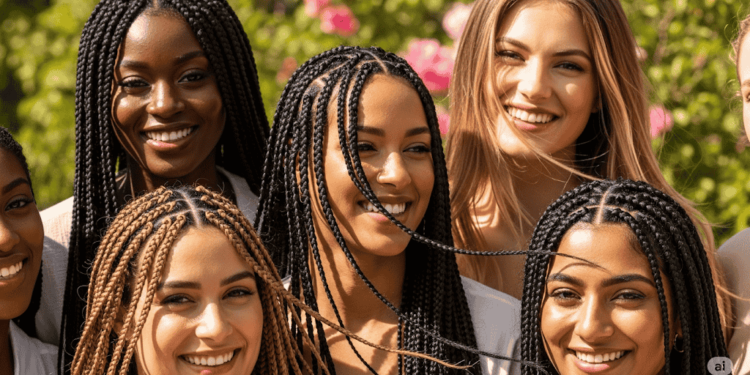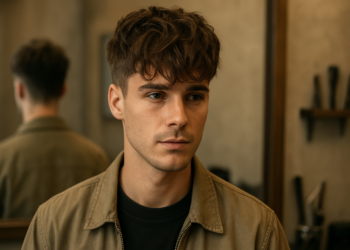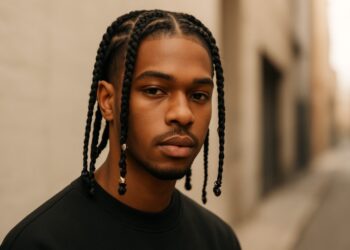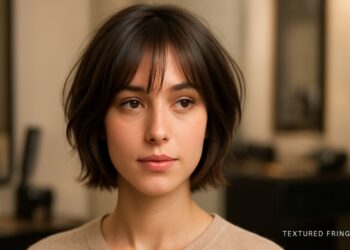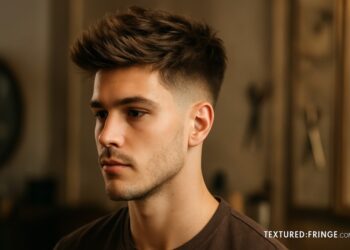Braided hair is everywhere – from casual days out to red-carpet events. Braid hairstyles have surged in popularity because they’re versatile, low-maintenance, and suit people of all ages and hair types. I still remember the first time I got box braids for summer vacation – I could swim, exercise, and even snooze without a hair emergency! Today, braids remain a top trend; one fashion roundup notes that a “braids hairstyle” is “very popular across multiple demographics,” including box braids, tribal braids, and cornrows. In other words, whether you want a protective style, a fresh look for travel, or simply a fun way to switch up your hair, braided styles are a go-to.
Why Braids Are Popular
Braids aren’t just stylish – they’re practical. For natural hair, braids like box braids or twists can encourage hair growth by keeping the ends tucked away and cutting down on daily tangles. They also offer a welcome break from heat styling and harsh chemicals. In fact, celebrity hairstylists point out that box braids are a “protective style for natural hair” that “supports hair growth by keeping your ends tucked away and reducing manipulation.”. Compared to loose hair, braided styles can be surprisingly low-maintenance. One source notes that “box-braid styles are a very low-maintenance hairstyle – they’re not going to frizz out immediately after getting wet,” making them perfect for beach days or vacations. In short, braids protect your hair from wear-and-tear, save you styling time, and look effortlessly cool – all reasons why they’re a favorite year-round.
Also Read About Textured Fringe
Popular Braid Hairstyles
Braids come in many shapes and sizes. Some popular styles include:
Box Braids:
Classic square-parted braids often made with extensions. They are iconic (seen on Zendaya, Rihanna, etc.), keep hair protected and can last 4–8 weeks with care. Box braids are very versatile – you can add beads, colorful threads, or style them into ponytails and buns.
Knotless Braids:
A gentler version of box braids where the braid starts smaller at the scalp. They’re lighter on the scalp and look very natural.
Cornrows:
Flat braids braided close to the scalp in straight or curving lines. Cornrows are great for keeping hair neat and can be styled into updos or combined with other braids.
Goddess Braids:
Long, chunky braids mixed with loose curly hair pieces for a softer, romantic look. This style remains trendy (and allows a few face-framing curls). For example, stylists predict “goddess braids, which feature long braids and pieces of loose curly hair, [will] continue to be highly requested” in 2025.
Fulani Braids:
Thin, decorative cornrows often including a central braid, sometimes adorned with beads or cowrie shells (inspired by the Fulani people of Africa).
French Braids/Fishtails:
Classic braid styles from childhood – French braids start at the scalp and keep adding strands, while fishtail braids weave hair into a slim, rope-like pattern. These are simple but elegant ways to braid any hair type.
Mohawk Braids:
An edgy look where the sides are braided or shaved and the middle section is braided upward into a mohawk shape. This style (sometimes with loose curly ends) is a bold trend for adventurous clients.
Boho or Butterfly Braids:
Loose, textured braids with loops or gentle waves, giving a bohemian flair. Stylists say butterfly (stitch) braids and boho-inspired braids offer a “soft, voluminous, effortlessly stylish look” perfect for a natural-chic vibe.
Whether you prefer sleek and tight or tousled and boho, there’s a braided style to fit your personal taste. Mixing up sizes (micro braids vs. jumbo braids), lengths, and decorations makes braids endlessly creative.
Also Read – Blowout Taper with a Textured Fringe
Protective Style Benefits and Care
One of the top reasons people choose braids is because they act as a protective hairstyle. By weaving hair into braids, you protect the ends and reduce breakage from daily brushing and styling. As one expert notes, braids let your hair “just get up and go,” requiring only minimal upkeep. You can wash, swim, or work out without worrying about frizz – braids stay intact much longer than loose hair. This makes braids especially handy during warmer months or active periods.
To keep braided hair healthy, follow a few simple care tips: sleep on a satin pillowcase or wrap your braids in a silk scarf at night to maintain shine and prevent friction. Keep your scalp clean and moisturized – for example, use a light oil or leave-in conditioner spray a few times a week to hydrate the roots. According to braid specialists, even though these styles are low-maintenance, you still need to “hydrate and cleanse the scalp” and use light moisturizing products.
How long can you keep braids? It depends on the style and your hair growth. Typically, box and knotless braids last about 4–8 weeks with proper care. After that, the roots loosen and buildup can occur. Most stylists recommend removing braids by two months at the latest, to rest the hair and scalp. When it’s time to take them down, you may see some hair shed – that’s normal shedding (up to ~100 strands per day on average) finally released. The key is not to leave braids too long and to avoid installing them too tightly, which can strain the scalp.
Cultural Roots of Braiding
Braids have a rich history spanning thousands of years. The practice of hair braiding dates back to ancient Africa: some of the earliest braids were traced to roughly 3500 BC with the Himba people in Namibia and cornrow styles found in Egyptian carvings from 3100 BC. In many African societies, different braid patterns could signify tribe, marital status, age or social rank. For example, Ghanaian “banana” braids were easy to apply and provided protection for Afro-textured hair; distinct braiding patterns even indicated a woman’s religion or social standing.
During the transatlantic slave trade, braids served as a quiet form of communication and resistance. Enslaved women in the Americas would braid maps and messages into their hair. Today, braided hairstyles have spread worldwide and become symbols of cultural pride and creativity. From cornrows and Fulani braids to modern boho-chic styles, the influence of traditional African braiding is evident. In fact, a recent beauty feature emphasizes that braid trends continue to be fueled by this heritage – saying braids “power new levels of expression and creativity” in hair fashion.
Trending Braids in 2025
Looking ahead, many braid styles are expected to stay hot in 2025. Experts predict that knotless braids will keep rising in popularity for their comfort and natural look. Styles blending textures – like the goddess braid (braids with curly ends) and the French curl bob – are on everyone’s radar. One stylist notes, “Girls just love curls,” when describing why goddess braids (which mix sleek braiding with loose curls) are so in demand. Boho-inspired variations are also big: the Bora Bora boho braids (extra curly and voluminous) and butterfly/bohemian braids (with looped, airy stitch braiding) are summer favorites.
Creative mash-ups are trendy too. For instance, “flip-over” braids combine Fulani braids, goddess braids, and full curly tops in one look. Bold styles like braided mohawks are enjoying a comeback – clients can request long braids swept upward and loose at the ends for a daring vibe. In short, the braid world is vibrant with innovation: from classic box braids and cornrows to these exciting hybrids, you’ll see braid styles everywhere on social media and runway shows in 2025.
Also Read – Textured Fringe with Mid Taper
FAQs about Braided Hairstyles
What are the benefits of braid hairstyles?
Braids can protect your natural hair from breakage and tangles by keeping ends tucked away. They also save time (since you won’t style your hair every day) and allow activities like swimming without frizz. Many people find that braids give their hair a growth boost by reducing daily manipulation.
How long do braids usually last?
Most braid installations (like box or knotless braids) last about 4–8 weeks with proper care. This can vary by braid size, hair type, and how well you maintain them. Avoid keeping braids in much longer than 2 months to prevent matting or scalp issues.
Are braid hairstyles suitable for all hair types?
Yes! People with straight, wavy, curly, or coily hair can all get braided styles. However, those with very fine or fragile hair should be careful: heavy extensions or very tight braiding can stress the scalp. Using the lighter “knotless” technique and not pulling too hard helps make braids safe for everyone.
Can I wash my hair with braids in?
Absolutely. You can gently shampoo the scalp and braids, rinse well, and let them air-dry or dry on low heat. Because braids are low-frizz, they’re great for vacations – you can swim or sweat without worrying about your style falling apart. Just remember to wrap your braids at night and moisturize your scalp regularly.
Do braided hairstyles cause hair damage?
Braids themselves are not inherently damaging – in fact, they protect hair – but problems can occur if they’re done incorrectly. Key rules: never braid too tightly (it shouldn’t hurt!), and take breaks between braiding sessions. Tight braids or leaving them in too long can weaken the hairline over time. With gentle installation and proper aftercare, braids are a healthy way to style hair.
By embracing braids, you tap into a style that’s creative, functional, and deeply rooted in culture. Whether you choose box braids, cornrows, French plaits, or a trendy goddess braid, this hairstyle brings out the best in your hair while making a fashion statement. Enjoy experimenting – and have fun with your braids!
